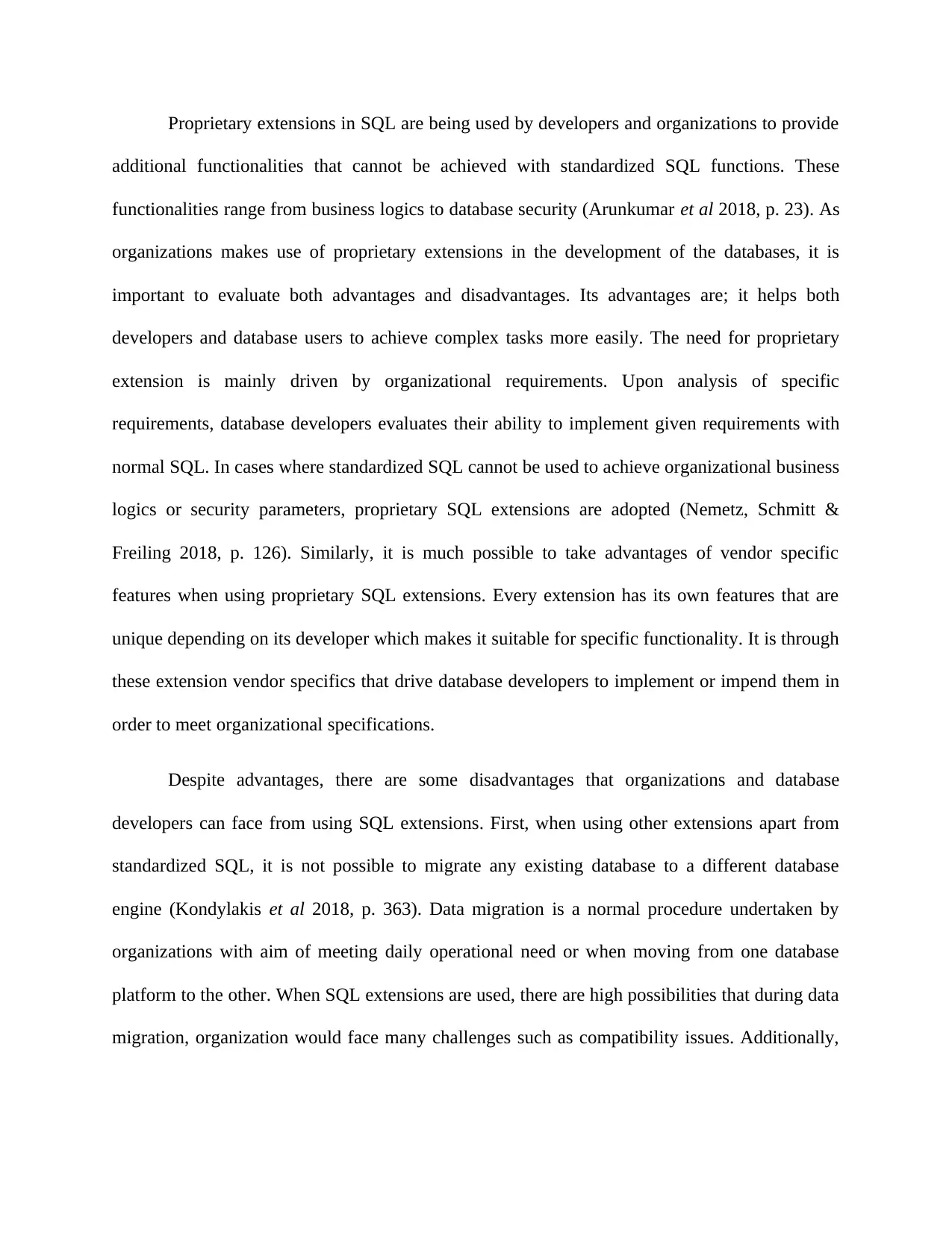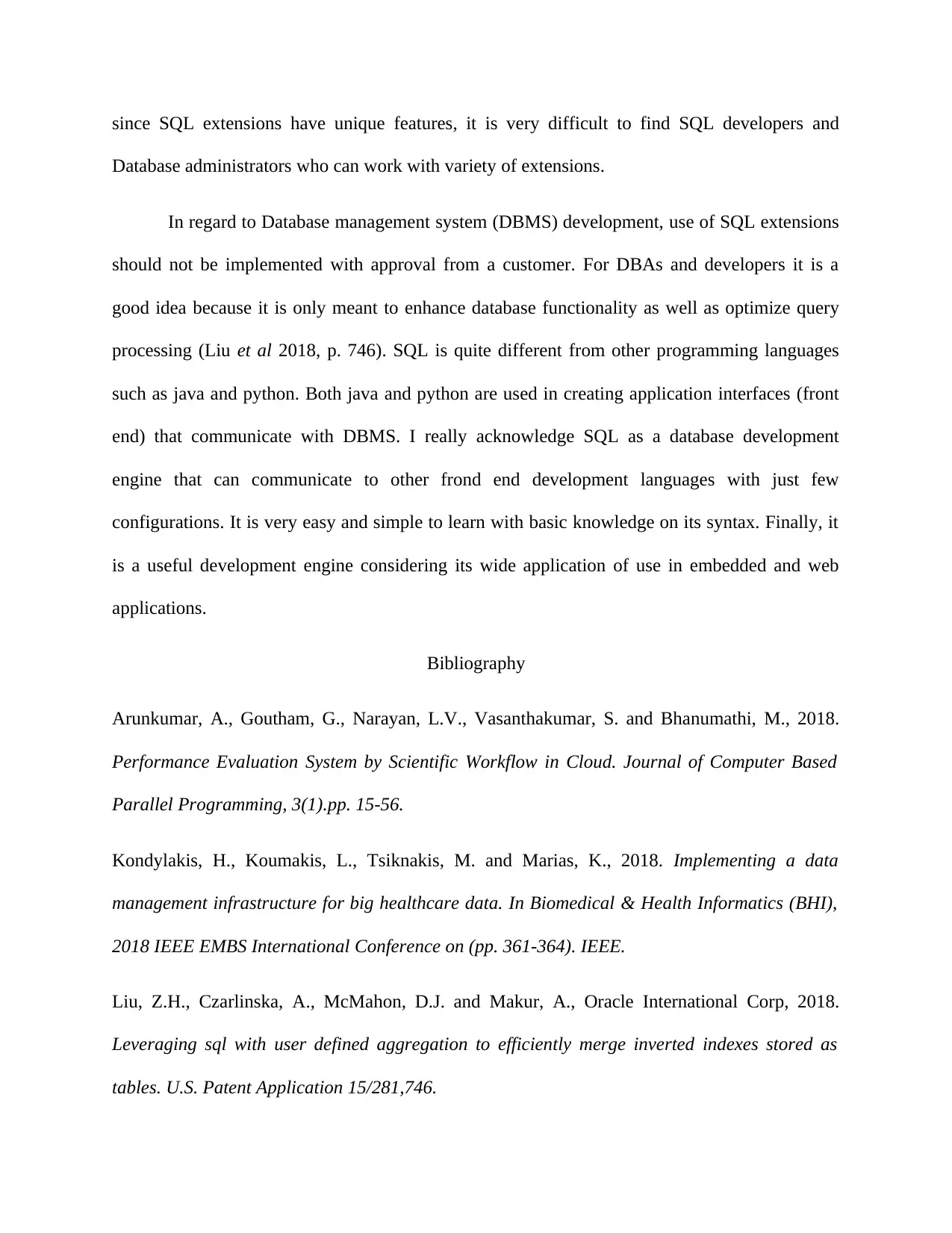Evaluating Advantages and Disadvantages of Proprietary SQL Extensions
VerifiedAdded on 2021/04/19
|4
|677
|65
Homework Assignment
AI Summary
This assignment explores the use of proprietary extensions in SQL databases, highlighting their role in providing functionalities beyond standardized SQL. It discusses the advantages, such as simplifying complex tasks and leveraging vendor-specific features to meet organizational requirements. The analysis also covers the disadvantages, including data migration challenges due to compatibility issues and the difficulty in finding developers skilled in various extensions. The paper acknowledges SQL's ease of use and its application in various development environments, from embedded systems to web applications, and emphasizes the importance of customer approval before implementing these extensions in database management system development. The assignment is supported by references to various research papers and publications.
1 out of 4










![[object Object]](/_next/static/media/star-bottom.7253800d.svg)